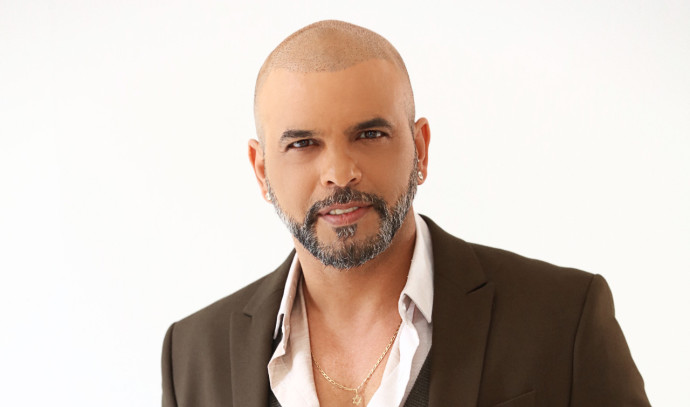Next month will celebrate Eyal Golan, One of the most successful singers in Israel, celebrates his 50th birthday and in the meantime, as part of his annual Passover tradition, releases a new album – “Be Happy” which for the first time in Israel is released as a visual album, ie each song receives an invested and quality clip, for all ten songs.
Many creators participated in the album, including Avi Ohayon, Peer Tessie, Avraham Tal, Tzlil Klipi and it also includes Golan’s collaborations with Idan Raichel, Eden Hasson, VIVO and Arik Sinai, but now, as every year, I will break down the album into elements and analyze it, without discounts , Without censorship and without filters (for better but also for worse):
The album opens with “Be Happy” created by Avi Ohayon and Avraham Tal, a personal song with a personal perspective on personal and local reality (“Millions of people build stone walls to the heart / say it’s good for cracks / I’m still exposed but the wind doesn’t come in / I’m stormy enough inside” ) That from first listening, I was less connected to the melody of the houses, but I was filled with interest and emotion especially in the anthem chant (which sounds like a stepbrother of Yoni Nimri’s “New Beginning”).
Although the song rises especially with the chorus but its very beautiful text overcomes all its shortcomings and paying attention to it, it is impossible not to sit in it.
The next song “This Heart” penetrated me less, although it is more rhythmic than its predecessor and also deals with the relationship of “between him and her” but does not reach any climax, not even in the chorus, and the lack of production is quite detrimental to my taste.
On the next song “Baor Gadol” which came out about a month ago and presents a beautiful joint duet between Golan and Eden Hasson I will not say too much as I praised him, both for the excellent text and the common chemistry between the two in the single review I published in “Maariv” when it came out.
We moved on, to the song “Home” created by two of the leading young forces in contemporary Israeli music, Tzlifi Klipi and Eran Kashi. From the first listen, the song catches the ear with its absorption, sweetness and Golan’s total sentiments in the performance.
Phrases like “In the evening I go to visit my sanity” or “You would have already reached out and drawn lines that will guide me” make the song a metaphorical piece of quality that strikes a chord with the whole experience that Golan represents in his songs. Add to that the empowering and empowering chorus that in my eyes makes the song one of the songs worthy of becoming the album’s hits.
The biggest surprise of the album is the excellent cover of “Good Days” originally performed by the singer Uri Revach (now Rabbi Uri Revach), the brother of the actor Zeev Revach (who is featured in the clip) and is considered one of the favorite songs from Israeli cinema from the seventies.
The scalloped arrangement and the nostalgic longing he evokes in his connection manage to do the job well, what is more, it is an exciting tribute to the profit that went through a difficult year.
A song that could easily have been given up, like an unnecessary hallucination, uninteresting and quite spoiling the spirit of the album is “Jumping Candy” which is meant to be a party song in clubs but pointless, uninteresting and not really able to serve the purpose for which it was written. Missing the album in my eyes.
The next song “War and Peace” is a duet with Eric Sinai, a surprising duet to note. Apparently the chorus that accompanies the two in the chorus is meant to force Sinai’s current vocal limitations (this of course does not detract from his personal charm), but other than the chorus the song is quite stuck and not so interesting, despite the curiosity this collaboration evokes.
The “write you” that follows is a real gem, both because of the melancholy and comforting text, an absorbing ballad well tailored to Golan’s voice, which brings out the best in him and also because of the musical simplicity in it that manages to elaborate exactly on the capillaries of the heart. One of the highlights on the album.
“Balloons” also continues the romantic, quiet and so pleasant line, the kind that make the album and preserve the status quo that Golan is careful to maintain as a quality artist who does not try to get carried away by silly trends (as opposed to “popsicles” which you understand, I did not like) but simple Puts the heart and sincerity and envelops them with emotion and a caressing voice with an excellent rhyme (“Summer will caress your back hair, it’s not just a metaphor”) and a captivating chorus.
The song that seals the album is Golan’s well-known collaboration with Idan Raichel – “Of All the Stars in the Night” which is intriguing by its very nature but does not develop anywhere and quite leaves a dull hint to the listener, especially given the many rights the two have to choose heartbreaking songs.
In conclusion, “Being Happy” includes more good things than less good and although it is not perfect (but it is complete) and includes a few unnecessary moments, the whole exceeds the sum of its parts and it presents Golan model 2021 in all its glory: the one that knows how to move between anthems and niche instant songs Nor does he forget to pay homage to the elders of the tribe. He shows him all his package and desires and provides each listener with the goods he wants to get from him (even if not all of his cup of tea).
 Cover of Eyal Golan’s album “Be Happy” (Photo: screenshot)
Cover of Eyal Golan’s album “Be Happy” (Photo: screenshot)